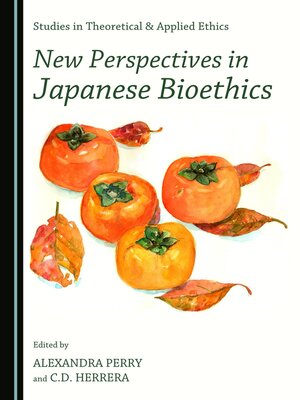New Perspectives in Japanese Bioethics
ebook ∣ Studies in Theoretical & Applied Ethics
By Alexandra Perry

Sign up to save your library
With an OverDrive account, you can save your favorite libraries for at-a-glance information about availability. Find out more about OverDrive accounts.
Find this title in Libby, the library reading app by OverDrive.



Search for a digital library with this title
Title found at these libraries:
| Library Name | Distance |
|---|---|
| Loading... |
Post-war Japan has seen profound and rapid social change and transformation. One of the most visible areas of change in Japan has been medicine, and particularly the ethical practices and policies that guide medical decision-making. The formal discipline of bioethics, Seimei Rinri in Japanese, has grown by leaps and bounds since the late 1970s, when it began to appear in the curriculum and professional activities of Japanese medical schools and philosophy departments. The introduction of bioethics to Japan was timely, as innovation in medicine and technology was evolving in ways that revealed that the intersection of medicine, traditional Japanese values, and new cultural trends was an area of great moral complexity. In its infancy, bioethics in Japan was more or less an import from the United States, where the discipline took its roots. Quickly, however, it became clear that Japan's history and tradition would call for a different approach, and the engagement of slightly different ethical issues. Organ transplantation, for example, sparked much greater controversy in Japan than it ever did in the United States. Today, Japan has one of the most dynamic bioethics programs in the world, and it is one that reflects both traditional Japanese culture and the need for inter-cultural engagement in an increasingly global world. Through a series of original chapters written by bioethicists and covering a range of ethical issues, this anthology shows that, in contrast to previous assumptions, Japanese bioethics has, in fact, taken on an identity that is undoubtedly separate from its American origins. Rich philosophical questions raised by medicine, human subjects research, and psychiatric care are being posed by scholars in a way that reflect Japanese tradition and is no longer simply reflective of, or shaped by, American traditions and philosophical problems. The book highlights and showcases these trends through a series of chapters written by some of the leading scholars in contemporary Japanese bioethics, many of whom were pioneers of the field when it began and are now nearing retirement.







